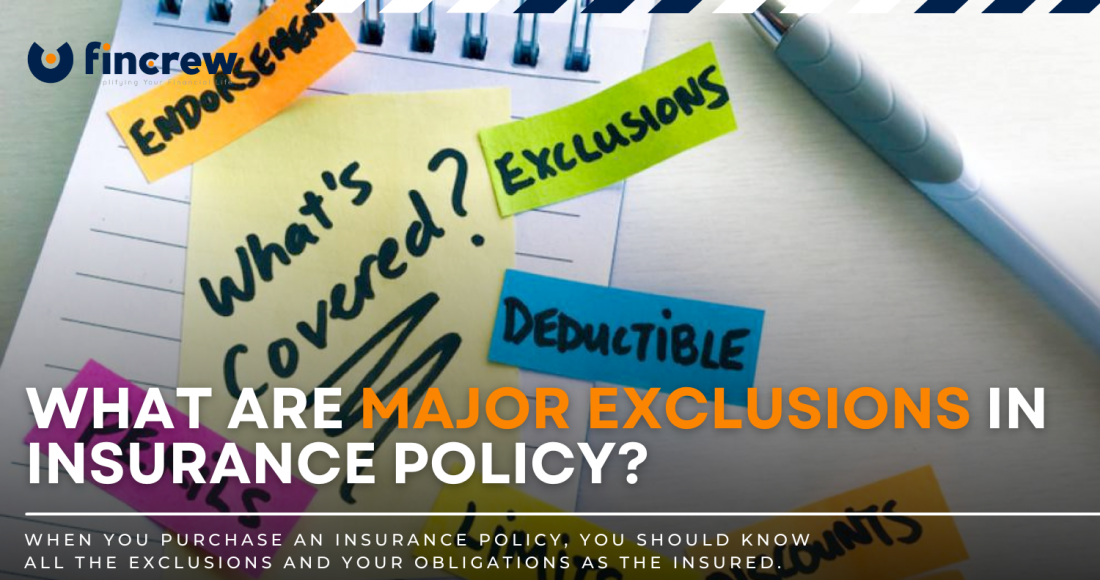Policyholders can avoid unexpected circumstances by purchasing an insurance policy. Unfortunately, some people overlook the exclusion clauses within insurance policies until it’s too late, but they are essential parts of the insurance policy. One example of exclusion is driving a car that is not roadworthy, being involved in an accident, or having excessive alcohol in your system. When you purchase an insurance policy, you should know all the exclusions and your obligations as the insured.
What Is An Exclusion In Insurance?
In insurance policies, exclusions are provisions that eliminate coverage for particular occurrences, properties, types of damage, or locations. The policy does not cover a plan that excludes any items or costs, and excluded fees are not included in the plan’s out-of-pocket maximum. Life insurance contracts, for example, have specific clauses and provisions to meet before filing a valid claim. Insurance providers are generally liable for paying claims if the insured dies. For the sake of avoiding adverse selection, insurance providers won’t provide benefits if an insured person commits suicide. Clauses of this nature must be clearly stated on the contract at the beginning of the policy period to inform the policyholder. An exclusion is also a waiting period during which they cannot claim insurance benefits.

The Reasons For Exclusion
Exclusions in insurance policies serve numerous purposes, but they are commonly used to cover risks:
A Cataclysmic Event
Some risks are not insured because they are catastrophic. An example of this is war. If a bomb damages your business property during a war, your commercial property insurance will not cover it. Most property policies exclude war damage.
Covered By Another Policy
Some risks are excluded because they are covered under another type of policy. For example, general liability policies exclude auto liability claims because they are covered under commercial auto policies. In the same way, liability and auto policies do not cover benefits the employer owes under a workers’ compensation law since workers’ compensation insurance must protect them.
Maintenance Issues
Several risks are excluded, including wear and tear, because they are naturally occurring phenomena that can be controlled by the insured through routine maintenance. Both commercial property and auto physical damage policies exclude wear and tear damage. Regular maintenance can also prevent rust, corrosion, and insect infestations.
Against Public Policy
Crimes, violations of laws, and intentionally causing injuries are usually excluded from insurance policies because they violate public policy. In this situation, liability policies do not cover incidents involving the insured’s intentional, harmful actions such as shooting a gun or defrauding someone.
Exclusions And Buybacks
In many exclusions, some exceptions restore a limited amount of coverage. One example is the contractual liability exclusion found in the standard general liability policy, which exempts liability assumed under a contract. The policy provides an exception for liability carried under contractual obligations (a defined term).
As long as you’re willing to pay more, you can remove some exclusions from your policy. General liability policies, for example, do not cover accidents caused by an employee to another employee. In addition, many businesses purchase co-employment insurance to cover claims made by co-workers.





